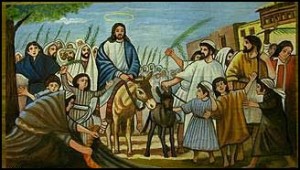 Yesterday I mentioned that we often look for Jesus in all the wrong places. The women who came to anoint Jesus’ body was asked “why do you seek the living among the dead?” As that story proceeds we get to ease drop on their conversation. On their way to the tomb, Mark 16:3 tells us that, “they were saying to one another, who will roll away the stone for us and from the entrance of the tomb?”
Yesterday I mentioned that we often look for Jesus in all the wrong places. The women who came to anoint Jesus’ body was asked “why do you seek the living among the dead?” As that story proceeds we get to ease drop on their conversation. On their way to the tomb, Mark 16:3 tells us that, “they were saying to one another, who will roll away the stone for us and from the entrance of the tomb?”
We often worry about things we shouldn’t. I don’t know about you but when I don’t have anything to worry about, I worry about that! Worry can become a bad habit. George Mueller suggested that faith and worry are antithetical. If you’re in the midst of one, you are out of the other. Worry accomplishes nothing. It’s like a rocking chair. It gives you something to do but it doesn’t get you anywhere. Like the two Mary’s we often worry about things that we shouldn’t worry about. Mark 16:4 says, “when they looked up, they saw that the stone was already rolled away.” I love the last little comment, “It was very large.”
I have very “large” problems! Don’t you? I have many “large” issues to deal with, don’t you? I have “large” relationship issues, don’t you? They are like alligators rising up to devour me! Who’s going to roll the stone away? Guess what! It’s already been taken care of. Jesus said, “…don’t worry about tomorrow. Tomorrow will worry about itself. Each day has enough trouble of its own.” In the context of that verse in Matthew chapter 6, we read, instead of worry, “seek first the kingdom of God and his righteousness” and all the things we worry about are already taken care of.
Chuck
“The Psalmist tells us “God is our refuge and strength, a very present help in trouble. Therefore we will not fear though the earth gives way, though the mountains be moved into the heart of the sea, though its waters roar and foam, though the mountains tremble at its swelling.” Psalm 46:1-3







